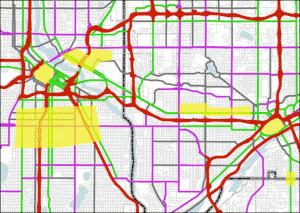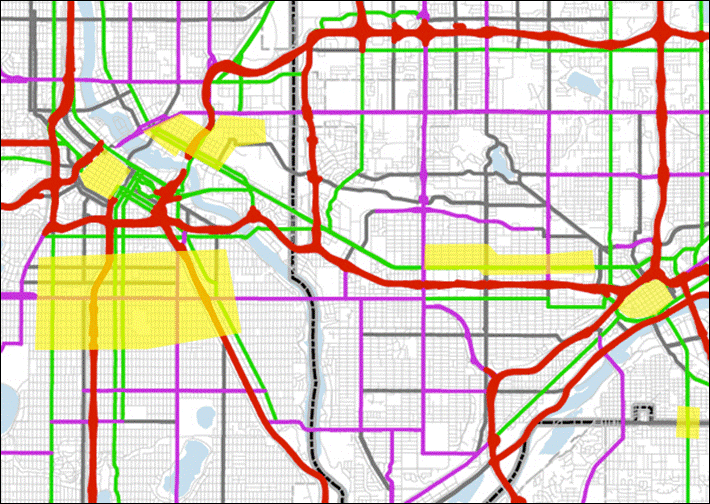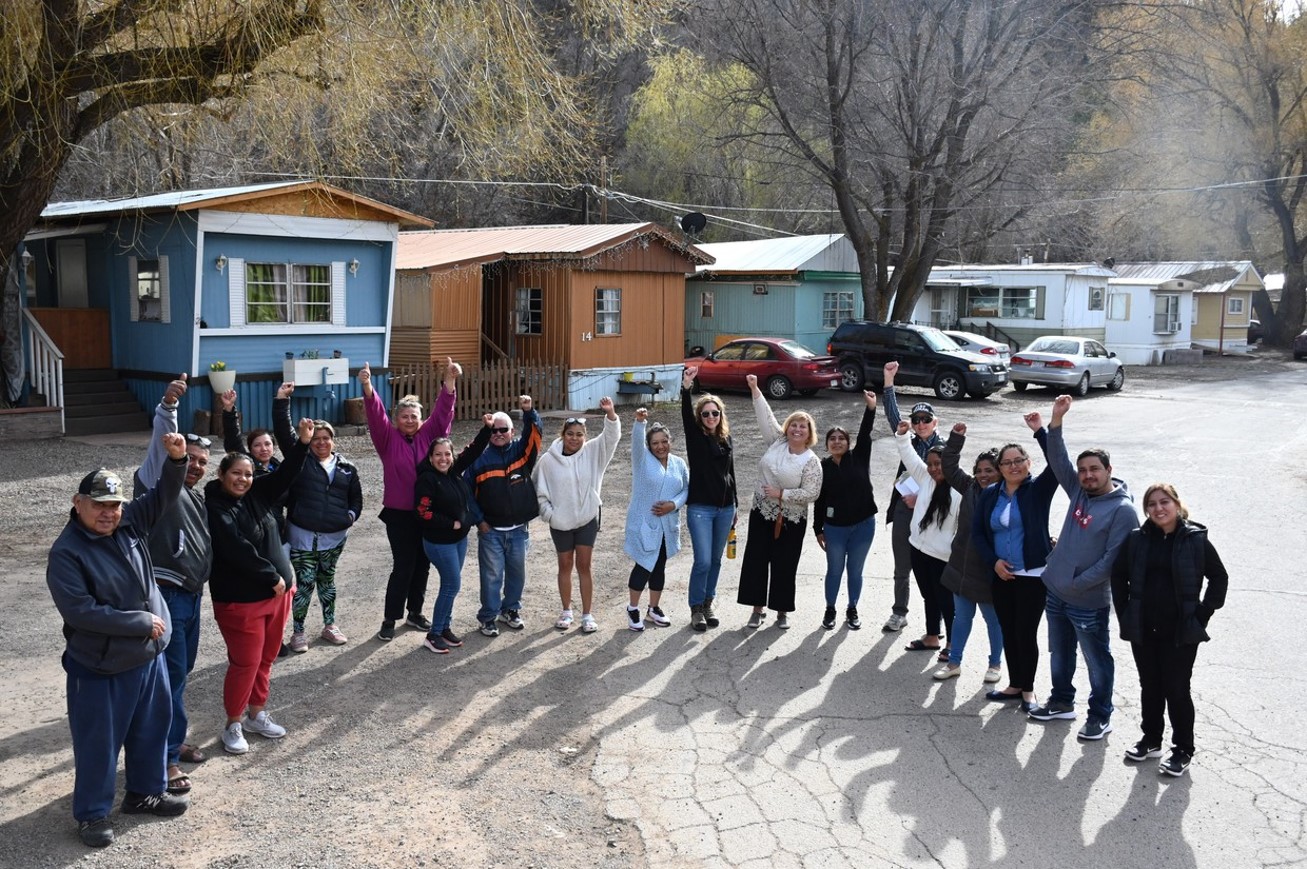
Image of districts in Minneapolis-St. Paul eligible for street networks, courtesy of CNU
I am immensely grateful to my colleagues at NRDC and in the broader smart growth movement for being on top of what’s been going on in the stimulus negotiations, particularly with respect to transportation investment. I know the legislation is better and more transit-supportive than it would have been without their dedication. But that debate has been all about immediate jobs, and bean-counting; it has not been, except in the crudest sense, about policy or the future of the country.
Indeed, the discourse over the stimulus details has been painful to watch. It’s been “official Washington” at its worst, basically various lobbying interests angling for more money for themselves.
That has my friend John Norquist, who used to be mayor of Milwaukee and now heads the Congress for the New Urbanism, concerned. John understands that the stimulus was about money (e.g., how much for roads, how much for transit), but he also knows that our policy issues regarding transportation investment are far more complex than that. The next debate, which for these issues will take place in the reauthorization of federal transportation legislation, must take place on a more sophisticated plane.
On Wednesday, John sent me a CNU position paper on how to shape investment so that it supports community, not just modes of travel. The paper argues for moving away from primarily funding additional capacity for roadways and toward investment in highly connected street networks, including existing street networks, that support community. Street connectivity is something I’ve been writing about for a while over at NRDC. While CNU’s paper was originally written for the stimulus debate, and the stimulus has not been the right instrument for nuance (gee, ya think?), these ideas deserve a full hearing in larger transportation debate.
I provide more details and some links here. Please take a look and leave a comment if you like.





Comments